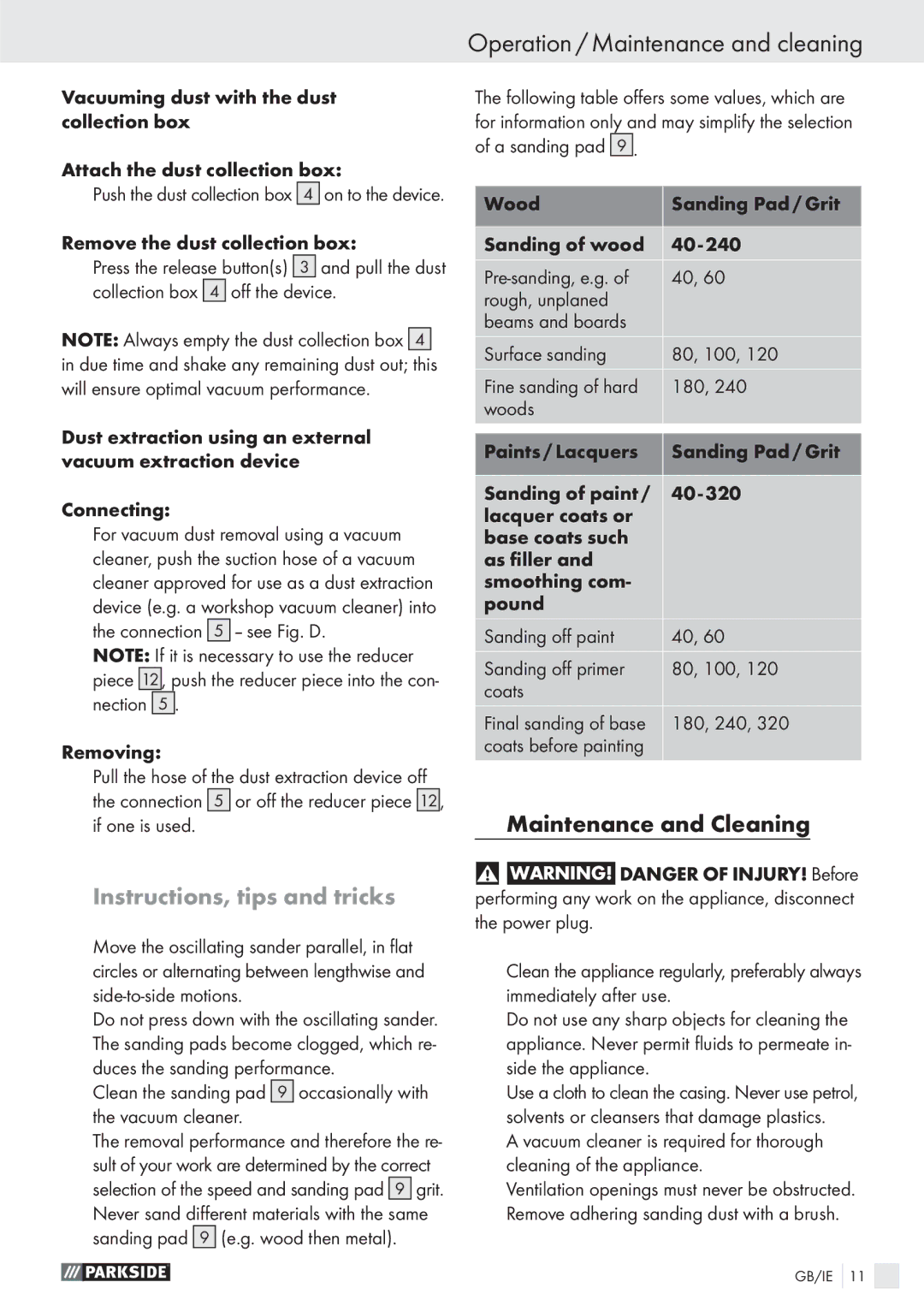
Vacuuming dust with the dust collection box
Attach the dust collection box:
Push the dust collection box 4 on to the device.
Remove the dust collection box:
Press the release button(s) 3 and pull the dust collection box 4 off the device.
NOTE: Always empty the dust collection box 4 in due time and shake any remaining dust out; this will ensure optimal vacuum performance.
Dust extraction using an external vacuum extraction device
Connecting:
For vacuum dust removal using a vacuum cleaner, push the suction hose of a vacuum cleaner approved for use as a dust extraction device (e.g. a workshop vacuum cleaner) into the connection 5 – see Fig. D.
NOTE: If it is necessary to use the reducer piece 12 , push the reducer piece into the con- nection 5 .
Removing:
Pull the hose of the dust extraction device off the connection 5 or off the reducer piece 12 , if one is used.
Instructions, tips and tricks
Move the oscillating sander parallel, in flat circles or alternating between lengthwise and
Do not press down with the oscillating sander. The sanding pads become clogged, which re- duces the sanding performance.
Clean the sanding pad 9 occasionally with the vacuum cleaner.
The removal performance and therefore the re- sult of your work are determined by the correct selection of the speed and sanding pad 9 grit. Never sand different materials with the same sanding pad 9 (e.g. wood then metal).
Operation / Maintenance and cleaning
The following table offers some values, which are for information only and may simplify the selection of a sanding pad 9 .
Wood | Sanding Pad / Grit |
Sanding of wood | 40 - 240 |
40, 60 | |
rough, unplaned |
|
beams and boards |
|
Surface sanding | 80, 100, 120 |
Fine sanding of hard | 180, 240 |
woods |
|
Paints / Lacquers | Sanding Pad / Grit |
Sanding of paint / | 40 - 320 |
lacquer coats or |
|
base coats such |
|
as filler and |
|
smoothing com- |
|
pound |
|
Sanding off paint | 40, 60 |
Sanding off primer | 80, 100, 120 |
coats |
|
Final sanding of base | 180, 240, 320 |
coats before painting |
|
Maintenance and Cleaning
![]() WARNING! DANGER OF INJURY! Before performing any work on the appliance, disconnect the power plug.
WARNING! DANGER OF INJURY! Before performing any work on the appliance, disconnect the power plug.
Clean the appliance regularly, preferably always immediately after use.
Do not use any sharp objects for cleaning the appliance. Never permit fluids to permeate in- side the appliance.
Use a cloth to clean the casing. Never use petrol, solvents or cleansers that damage plastics.
A vacuum cleaner is required for thorough cleaning of the appliance.
Ventilation openings must never be obstructed. Remove adhering sanding dust with a brush.
GB/IE
11
